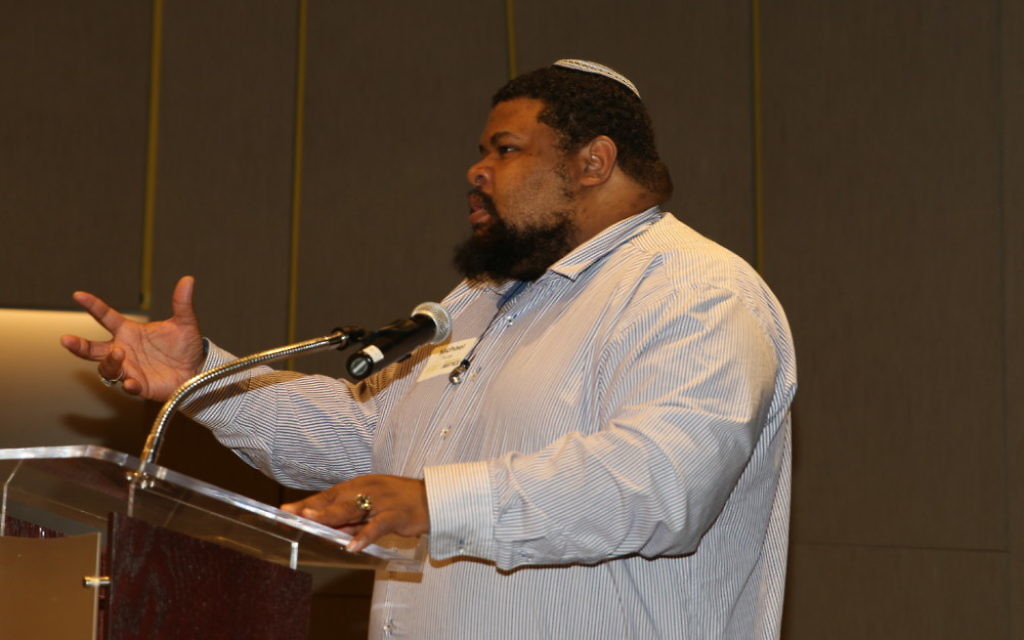Jews Should Embrace Racial Diversity
African-American Jews can offer surprising insights about the Jewish community.
The first week of my job at a Jewish nonprofit in San Francisco coincided with the summer session of our residential camp in the hills north of the city. As I pulled into the ranch where we as well as another group rented space, I realized I had no idea how to find our group.
Driving around the property, it became clear I need not have worried. One look at the gaggles of kids and it was easy to spot the Jews: As opposed to the choir camp kids who were white, the Jewish kids were predominantly kids of color.
Soon we will mark Martin Luther King Jr. Day and recall the legacy of this great man and what he symbolizes for American life.
Get The AJT Newsletter by email and never miss our top stories Free Sign Up
Throughout the country, black church choirs will grace the bimot of synagogues. White rabbis will trade pulpits with black pastors. We will look back on the time when Dr. King and Rabbi Abraham Joshua Heschel marched hand in hand.
These sorts of celebrations and historical thinking represented most of what I knew about race and Jewish life when I began working at Be’chol Lashon seven years ago. Through my extensive Jewish education and professional training, I had only rarely considered how race and Judaism might come together for Jews of color.
From that first day at Camp Be’chol Lashon in Sonoma, engaging with Jews of color and working to promote and celebrate the diversity of the Jewish community have challenged me to grow and expand my understanding and appreciation of Jewishness.
Far too often in the Jewish world, the way we celebrate the King holiday solidifies the false dichotomy that pits blackness and Jewishness one against the other, obscuring the complexity and diversity that exist within our community, where there are Jews of color, some of whom are converts, some of whom were born Jewish, some of whom were adopted into Jewish families.
There is no singular narrative of African-American Jewish life. My experiences in Atlanta mirror those I have had nationally. There are black Jews in every denomination. They vary in their political affiliations and in their connection to Israel, just as white Jews do. They are young and old, professional and working class, spiritual and agnostic, just as are white Jews.
What connects them are the challenges they face when it comes to assumptions that are made about who they are.
In the broader secular world, their Judaism often goes unnoticed or ignored, even if they are devoted in their practice. In the broader world, they face the racism that is woven into the fabric of so much of American life.
In the Jewish world, their presence is not always welcome. And even in the most welcoming Jewish spaces, it is not uncommon for Jews of color to find themselves asked intrusive questions about their Jewish status or to be assumed to be the hired help and not members of the minyan.
But these Jews are also so much more than their negative experiences. They are creative and thoughtful. Their passion for Torah, Jewish tradition, culture and ritual outweigh the discomfort they encounter in Jewish spaces.
Their tenacity and faith inspire me. Often their experiences, some of which are based on a racialized encounter with the world, provide me with new perspectives and insights into our traditions and culture.
The insights into African-American slave kitchen culture offered by culinary historian Michael “Kosher/Soul” Twitty, for example, have helped shape my understanding of Jewish food. Rabbinical student Sandra Lawson’s takes on traditional texts add doses of Torah wisdom to my daily life. Local singer-songwriter Prodezra Beats has expanded my understanding of Jewish music.
So this year, as we celebrate Martin Luther King’s legacy and its meaning for contemporary Jewish life, I hope we go beyond the black/Christian-Jewish/white dichotomy to embrace the rich complexity of our community and the Jews of color who have the potential to enrich us all.





comments